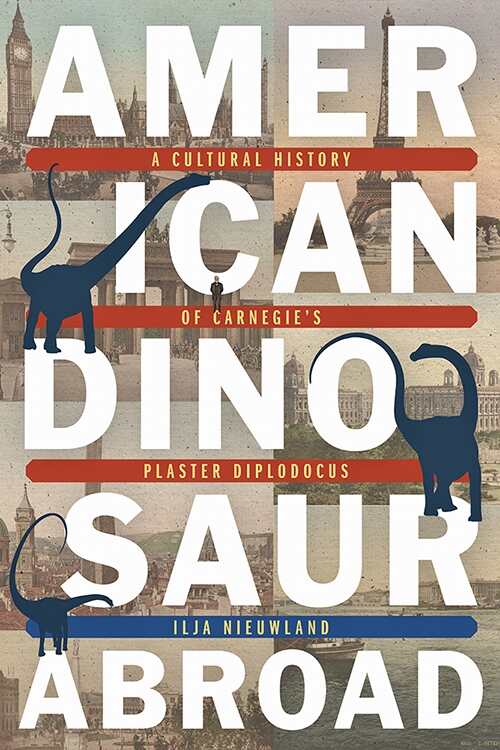American Dinosaur Abroad
A Cultural History of Carnegie's Plaster Diplodocus
In American Dinosaur Abroad, Dutch historian of paleontology Ilja Nieuwland traces the rise of people’s obsession with dinosaurs by way of a set of plaster diplodocus casts that traveled around the world. The diplodocuses tell the strange story of how goals of scientific discovery and philanthropy were muddied by political strategizing at the turn of the twentieth century.
In 1899, fossilized dinosaur bones were unearthed at Sheep Creek, Wyoming. Andrew Carnegie, a steel and oil magnate whose family had immigrated to America from Scotland, acquired the specimen for his Pittsburgh museum. At a time of worldwide dinosaur fever, he realized the possibility of currying favor and derailing potential conflicts by making plaster casts of his diplodocus and distributing them to Britain, France, and Germany in the run-up to World War I. Nine casts were made in total, journeying as far as Russia and Argentina.
Nieuwland crafts appealing portraits of the narrative’s many characters, especially William J. Holland, the director of the Carnegie Museums and a lepidopterist turned self-trained paleontologist. The book considers both the broad sweep of the study of dinosaurs and the single moments that changed history, including Carnegie’s visit from King Edward VII, who remarked that he fancied having a diplodocus in his national collection. That first cast of “Dippy,” as the dinosaur was nicknamed, was displayed in London’s Natural History Museum until 2017.
Extensive use of archives and sources in multiple languages result in thorough context for a global movement that involved much anatomical speculation and dueling expertise. Though it was not written in Nieuwland’s first language, the book’s prose is flawless. Reproductions of period newspapers, posters, photographs, and drawings testify to the growing international fascination with dinosaurs.
American Dinosaur Abroad is a learned, entertaining survey of early paleontology and its key figures and findings.
Reviewed by
Rebecca Foster
Disclosure: This article is not an endorsement, but a review. The publisher of this book provided free copies of the book to have their book reviewed by a professional reviewer. No fee was paid by the publisher for this review. Foreword Reviews only recommends books that we love. Foreword Magazine, Inc. is disclosing this in accordance with the Federal Trade Commission’s 16 CFR, Part 255.

